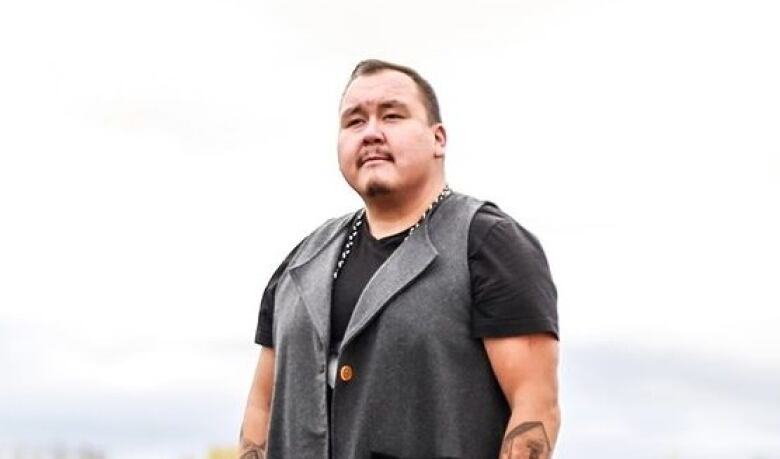'Why can't I be viewed as an artist?' Indigenous Junos category debated among Manitobans
Category can benefit artists, but some say it lacks recognition of diversity

This week's Juno nominations have some in Manitoba talking about what it means to be an Indigenous artist — and how Indigenous musicians are recognized.
"We've been talking about diversity and inclusion, and we're steering away from that to focus on equity," said Jade Harper, Indigenous music export co-ordinator for Manitoba Music.
The Juno Awards have one category specifically for Indigenous artists called Indigenous artist or group of the year. But the purpose of this category — and what it means to different musicians — is up for debate.
That's why Manitoba Music is putting on a workshop Wednesday under the banner of Indigenous Music West. "Indigenous is not a genre: Indigenous perspectives on the music industry" will include a panel discussion on the complexities of Indigenous identity, music and representation.
'Why can't I be viewed as an artist?'
This year's Juno nominees include Indigenous musicians featured in categories beyond the Indigenous-specific one, including former Winnipegger iskwē's nod for adult alternative album and music video.

Harper said while there are some benefits to having Indigenous-specific categories, there are some calls to get rid of them.
"There's this invisible — or not so invisible — brown box.… This is the box that you check off to say that you're Indigenous. This is when events are looking to diversify their events or activities that they're doing," she said.
"I hear a lot from Indigenous people about not necessarily wanting to participate that way. Like why can't I be viewed as an artist? Why can't I be viewed as a music professional in the industry? Why does it always have to be in this area?"
More understanding of artists needed
Juno Award winner and past nominee William Prince said he has mixed feelings about the category. Prince won Contemporary Roots Album in 2017. That same year, he was also nominated for Indigenous Music Album.
"When I heard the fellow nominees, it became clear to me I was included in the category for Indigenous recording solely because of my heritage," said Prince.
"Not so much my application of traditional Indigenous works or even preserving the art of Indigenous-focused singing, performing of any kind."

He said the category was created in a time when there wasn't as much visible diversity in Indigenous music as there is today.
"You have all these artists who blur all kinds of lines with a single performance as to what it means to be an Indigenous performer," said Prince.
"I think overall there's going to be more education needed on the other factors at play. Like why this music becomes special when people are often surviving through sub-par living conditions in the country that chooses to reward them for this music."
There are several Manitoba connections to this year's Juno nominees, including Alan Greyeyes. The music agent from Peguis First Nation represents Alberta acts Caleigh Cardinal and nêhiyawak.

Greyeyes said the Junos have become an ally, but it's time to expand the understanding of what it means to be an Indigenous musician. There's a need to recognize the diverse music Indigenous people create, and to create more space for Indigenous people on the industry side.
"We have different languages, but the ties that bind us are our experience with residential schools, the destruction of our families and the racism we face," said Greyeyes.
"I think Indigenous artists are at a loss because I think when it comes to making business decisions ... I think anyone goes to the artists or the people that they're most comfortable with. And so for Indigenous artists, we're kind of falling outside of that."
Understanding complexities 'a nation's work'
With an album coming out soon, and on the cusp of a U.K. tour, Prince said understanding the Indigenous identities behind the music is the most important thing.
"That's a much deeper-rooted thing than what studio we recorded that or what time of year a project is coming out. That's a nation's work to be done," he said.
"So it might be a tough hill to climb for budding artists who just want to speak their voice. So I say stay focused on who you are, and if it comes through your music naturally to sing of the issues and the culture that you grew up immersed in — or maybe didn't, that you're trying to educate yourself through the music for, then do that."
With files from CBC Radio's Up to Speed

